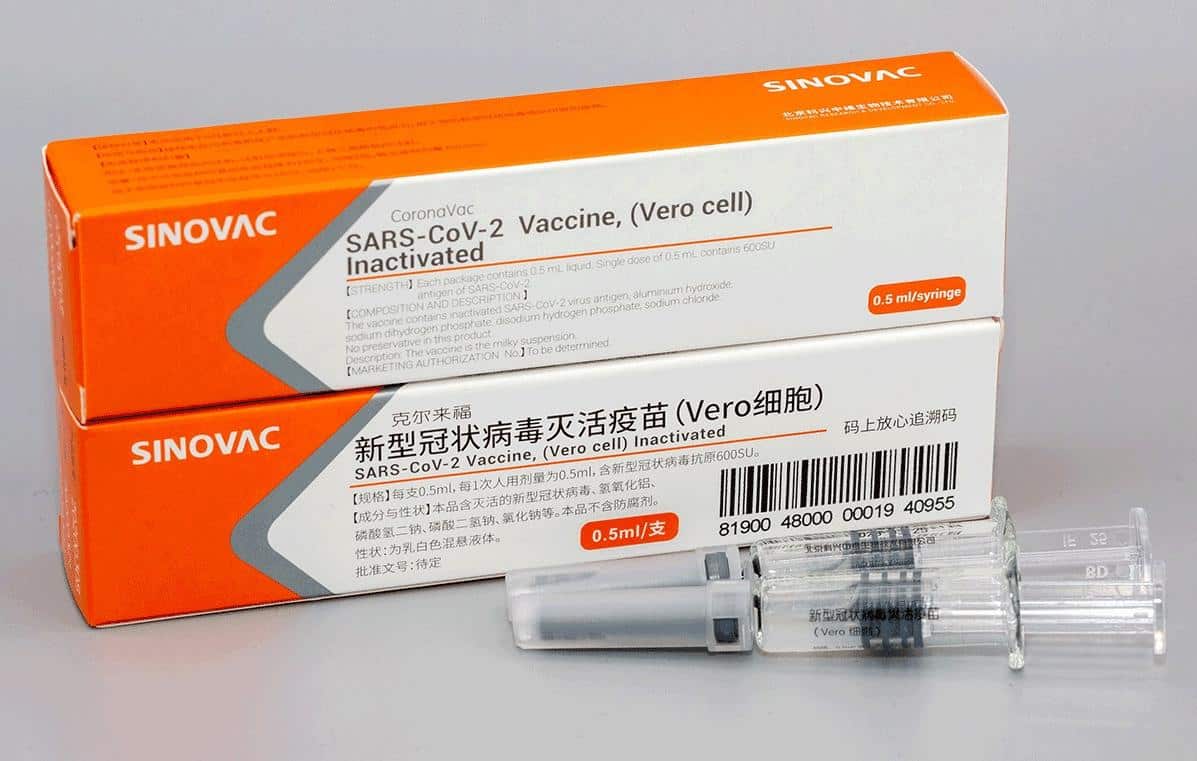RIO DE JANEIRO, BRAZIL – The Chinese Sinovac Biotech reported on Monday, September 7th, that the vaccine it is developing against Covid-19, in partnership with the Butantan Institute in São Paulo, proved to be safe for the elderly. However, the immunological responses triggered by the vaccine were slightly weaker in this group than in younger adults.
According to Liu Peicheng, the company’s representative, the CoronaVac vaccine did not cause serious side effects in Phase 1 and Phase 2 combined clinical trials begun in May with 421 subjects aged 60 or older.
“Of the three groups of subjects who were administered two low, medium and high dose CoronaVac injections respectively, more than 90 percent had a significant increase in antibody levels, but the levels were slightly lower than those observed in younger individuals, although in line with expectations,” said Lu.

These are preliminary findings and were achieved after initial to intermediate level testing. The full results have not been published.
Four of the world’s eight vaccines currently in their third trial phase are Chinese.
Health authorities around the world want to know if the vaccines being researched can safely protect the elderly, whose immune system typically reacts less strongly to immunizers against the coronavirus, which has already caused nearly 900,000 deaths worldwide.
CoronaVac
CoronaVac, which is being tested in Brazil and Indonesia in Phase 3 (final) to assess whether it is effective and safe enough to secure authorization for mass administration, has already been offered to thousands of people, including some 90 percent of Sinovac’s employees and their relatives, as part of China’s emergency vaccination plan to protect people at high risk of infection.
The Chinese vaccine candidate may remain stable for up to three years in storage, according to Liu, which may offer Sinovac some advantage in distributing the product to regions where refrigerated storage is not an option.
Steps for vaccine production
To produce a vaccine takes time. The quickest developed to date was the mumps vaccine, which took approximately four years to be licensed and distributed to the population.
Before starting the volunteer trials, the vaccine goes through several stages of pre-clinical testing (in laboratory and with guinea pigs). Only after its safety and efficacy are assessed do human trials begin, the so-called clinical stage, which consists of three phases:
- Phase 1: A preliminary assessment of the vaccine’s safety is conducted with a reduced number of healthy adult volunteers who are closely monitored. It is at this time that the type of response that the immunizer produces in the body is perceived. It is administered to dozens of trial subjects.
- Phase 2: In the second phase, the clinical trial is extended to include hundreds of volunteers. The vaccine is administered to people with features (such as age and physical health) similar to those for which the new vaccine is intended. In this phase, the safety of the vaccine, immunogenicity (or protection capacity), dosage, and how it should be administered are assessed.
- Phase 3: A large-scale trial (with thousands of subjects) is necessary to provide a definitive assessment of efficacy and safety in larger populations. In addition, it is designed to anticipate adverse reactions and ensure the durability of protection. Only after this phase in completed can a health record be completed.
Source: G1

